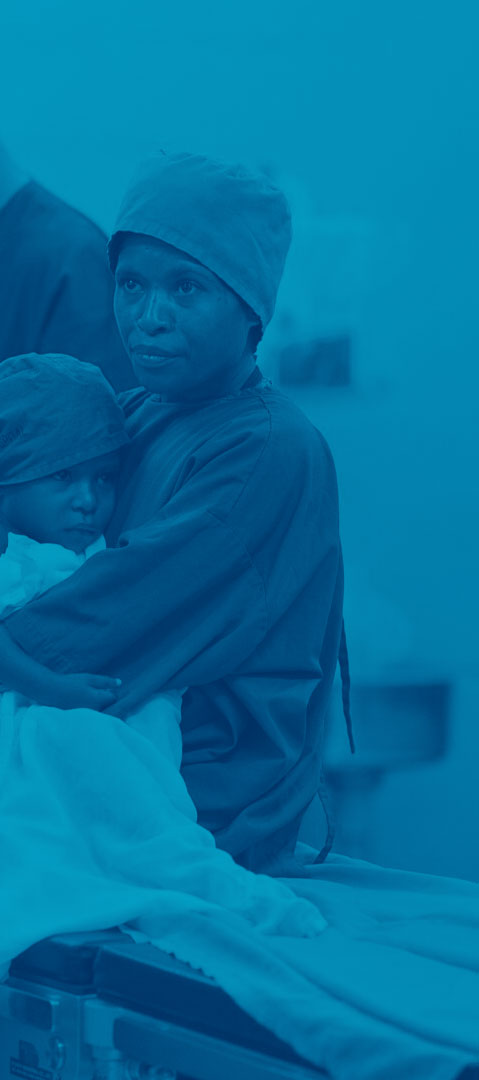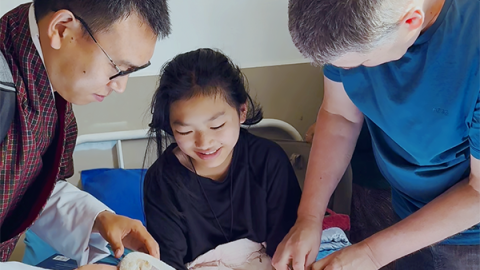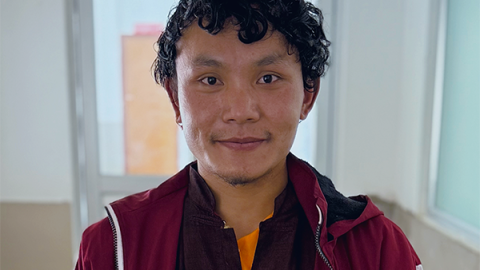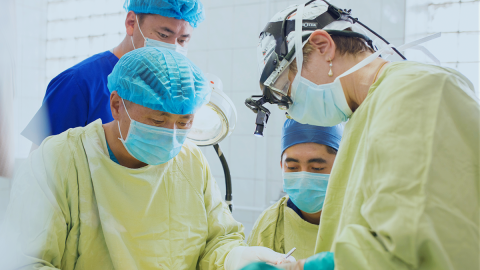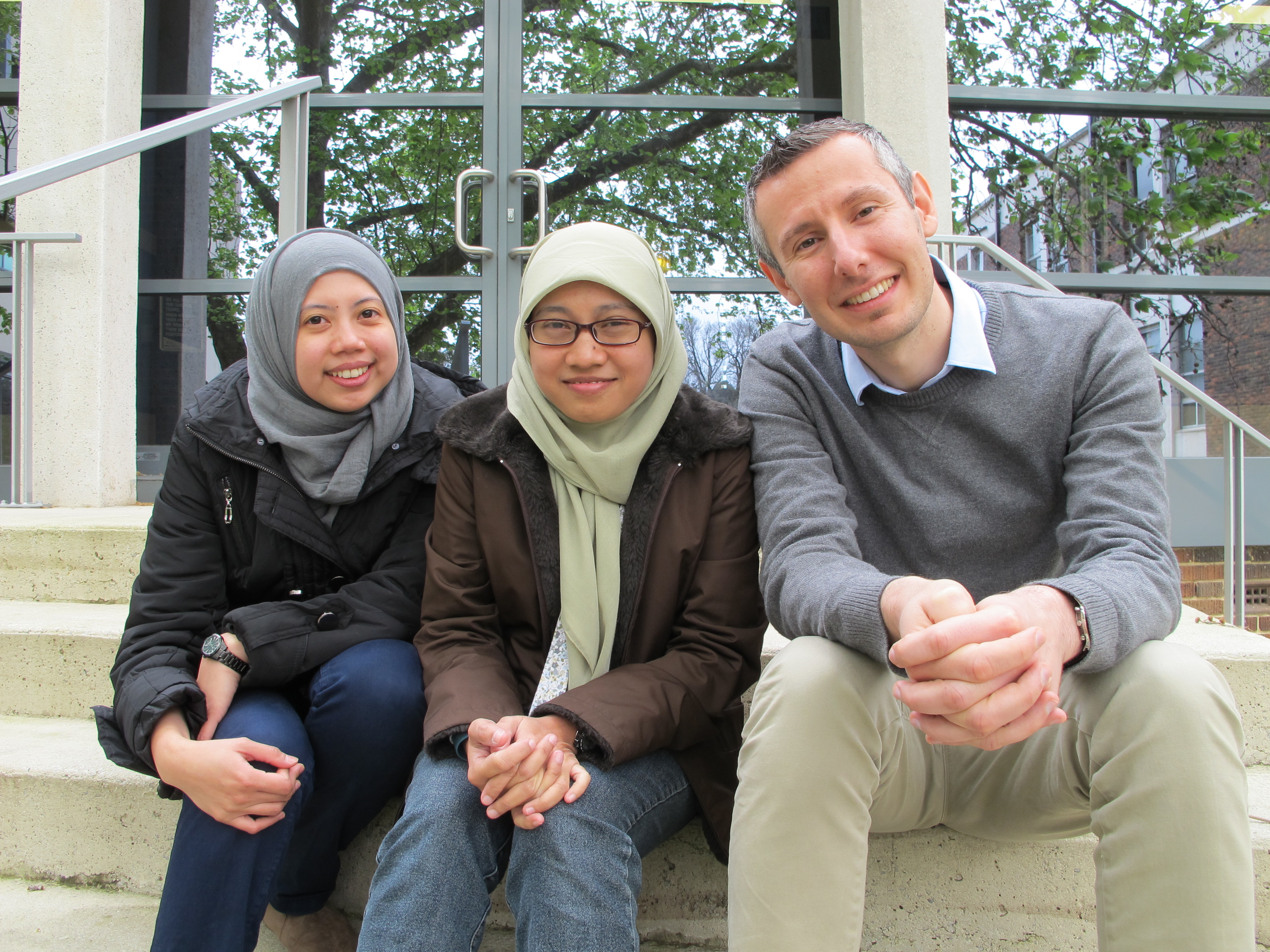
In late 2016, two senior anaesthetic registrars from Indonesia braved the cold of an extended Victorian winter for a month of observation and training supported by Interplast.
The winter chill in Ballarat is a long way from the tropical heat of Surabaya, but although they had to rug up against the elements, it didn’t dampen the enthusiasm of Dr Rinanti Septihingtyas and Dr Rieza Furry Anisa Putri as they made the most of the opportunity to learn from staff at Ballarat Health Services throughout September and October.
The two doctors are senior registrars at the Dr Soetomo Hospital in Surabaya, the second-largest city in Indonesia. The hospital is at the eastern end of Java, just a stone’s throw from Bali, and with 1500 beds and 150 anaesthetic registrars, it is responsible for the acute management of health in the entire eastern half of Indonesia, the world’s fourth most populous country. Both doctors are in the final year of their five years of anaesthesia training.
Despite the country’s large population, they still face shortages in many specialised medical areas, including anaesthetics.
Dr Rieza is originally from Samarinda in East Kalimantan, the island to the north of Java. She said that a lack of anaesthetists means that the hospital there currently only performs caesarean sections and minor operations – all major operations have to be done on other islands, which means patients must travel. On completion of her anaesthetist training, Dr Rieza will return to Samarinda to bolster the expertise there.
During their visit, the two doctors spent most of their time in theatre and the Intensive Care Unit at Ballarat Health Services. They also attended the Australian Society of Anaesthetists National Scientific Conference, took part in a number of other training opportunities, and visited other hospitals, including the Royal Melbourne Hospital and Royal Children’s Hospital.
The two doctors said that the experience was vital for expanding their skills and knowledge.
“We do anaesthetics every day, but we just do it as usual with little ability to monitor the safety of the patient, or to prepare the patient for a possible painful post-operative experience,” said Dr Rieza. “Patient safety here is very good. We will try to make the same in our hospital, seeking to optimise patient safety.
“It opens our minds. It’s not just about making people fall asleep and then wake up when the operation is over, but how to make the patient comfortable with our anaesthetic. Firstly, it’s about patient safety, and then followed by patient comfort. And then in post-operative care you give a lot of painkillers here so the patient does not suffer significant pain, and they follow-up every day.”
Dr Rieza said this approach was very difficult in the Indonesian setting because of the sheer volume of patients and the limited number of anaesthetists and nursing staff.
Thomas Loporto, Interplast’s Program Activities Coordinator for the Pacific, Bhutan and Indonesia, said that the visit from the two doctors was an example of Interplast’s ongoing focus on building the capacity of medical professionals from across the Asia Pacific, both by conducting training and mentoring in their home countries, along with giving people the opportunity to access training in other countries.
“This part of our Indonesian program has been running since 2004, with huge support from the Rotary Club of Ballarat West and Ballarat Health Services, and driven by Dr John Oswald, an anaesthetist with Ballarat Health Services and a Rotary member who has also been a long-term Interplast volunteer.
“Including our latest visitors, since 2004 there have been 24 anaesthetic registrars from Indonesia complete this training program, significantly boosting the quality of anaesthetists in the Indonesian healthcare system.”
Dr Oswald concurred, saying: “All alumni of this training program have achieved a high level of professional success in Indonesian anaesthesia, with many now on the staff of Dr Soetomo Hospital.”
Dr Rieza and Dr Renanti both expressed their deep gratitude to the supporters of Interplast who help make such opportunities possible, and their commitment to supporting Interplast in any way they can.
“We hope to be able one day to help an Interplast program in Indonesia,” said Dr Renanti.
Funding for this program was provided by the Rotary Club of Ballarat West and the Australian and New Zealand College of Anaesthetists, with invaluable support and hosting by Ballarat Health Services.
